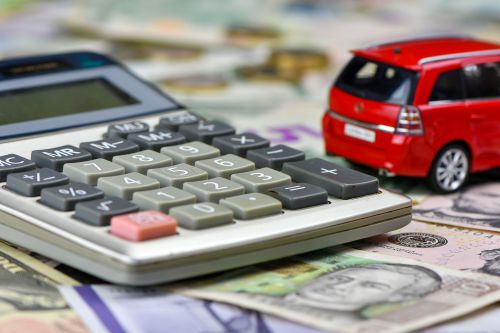Tax Season 2023 - Get Those Auto Logs Ready!

Taxpayers who claim auto expenses, commonly commission sales people, the self-employed and employees who wish to reduce their annual auto standby charge on their employer-provided vehicle, will know that keeping an auto log is mandatory to succeed in a CRA review of their tax filing. But after a “pandemic holiday” on keeping strict records, tax filers will have to create a new base year log to meet audit requirements.
CRA’s temporary COVID-19 measures considered that an employee who used an auto more than 50% of the time for business/employment purposes in 2019 will have done the same in 2020 and 2021.
Note: The auto standby charge and operating expense benefit may also give rise to Goods and Services Tax/Harmonized Sales Tax (GST/HST) obligations. That is, employers will need to remit GST/HST for the auto benefits that are taxable benefits to the employee. These GST/HST rules remain unchanged during the pandemic and of course will continue for the 2022 and future years.
For 2022 the rules are identical to those before the pandemic. So, the implication is that a log is required if the personal use of the employer-provided vehicle varies more than 10% from the previous base year - 2019.
If the employee continues to work from home, or did so for a large portion of the year, one can expect that the personal use would be similar in most cases. Where the employee returned to working from the office in 2022, personal use would likely be significantly different from the 2019 base year and an auto log would be needed to claim the standby charge reduction.
After re-establishing your base year driving for one year, use a three-month sample logbook in subsequent years to estimate full year driving trends. As long as the usage is with the same range (plus or minus 10%) of base year driving, CRA will accept the 3-month log. Businesses must show the use of the vehicle in the base year is still representative of its normal use.
The business use of the vehicle years after the base year will be calculated as follows, as per CRA:
(Sample year period % ÷ Base year period %) × Base year annual % = Calculated annual business use
What should be in the auto log? All of the following for each business/employment related trip: the date, destination, purpose, number of kilometres to and from the location.
Most books and records must only be kept 6 years from the end of the tax year to which they relate. But in the case of auto logs, the base year record must be kept for a period of six years from the end of the last tax year it was used to establish business use. A DFA-Tax Services Specialist™ and an RWM™ (Real Wealth Manager™) can help you get it right.
Bottom Line: Auto Logs are a necessary part of any auto expense write-off – be it on the T777 Employment Expenses Statement, the T2125 Statement of Business or Professional Activities. Be sure to be proactive and review the rules for keeping them in this transition year and before T4 slips are finalized for 2022 with your clients.
Evelyn Jacks is the President of Knowledge Bureau and best-selling author of 55 tax and financial books. She tweets @evelynjacks.
Additional Educational Resources: The latest tax filing changes for 2022 tax filing year will be discussed at the February 7 Advanced Tax Update at the Pearson Convention Centre starting 8:15 Sharp. Save time and money by registering before February 1. Group rates possible.
Too busy to attend a full day? Take the Advanced Tax Update online course which features the recorded presentations from our experienced and dynamic instructors. You will learn a lot, such as, What’s New at Finance Canada -Tax Theory Changes for 2022 and 2023 including:
- New Benefits and Clawbacks – Canada Dental Benefit, CCB, CWB, etc.
- Non-Refundable Credits: DTC Enhancements and Notices of Determination
- Doubling Home Accessibility Tax Credit Effective January 1, 2022
AND MUCH, MUCH MORE!
“This was a great, very informative summit! Answered a lot of my questions and gave me points to touch on with my clients.” – Cathy Losing
Learn more about the February 7 Summit and enrol today!
DFA-Tax Services Specialist™ With this designation, your specialization in personal taxation, you’ll provide sound advice and prepare a broad range of returns—from simple to complex—and then help families accumulate, grow, preserve and transition wealth with tax-efficiency. Enrol today!
RWM™ (Real Wealth Manager™) Advisors authorized to use RWM™ designation behind their names have a deep and broad understanding of both the behavioral and financial skills required to manage family wealth over several generations. In collaboration with the family, and an inter-advisory team of financial professionals, RWM™ develops a strategy and follows a process to manage intergenerational wealth on an after tax-basis. Learn more. Enrol today!
Evelyn Jacks is Founder and President of Knowledge Bureau, holds the RWM™, MFA ™, MFA-P™ and DFA-Tax Services Specialist designations and is the best-selling author of 55 books on tax filing, planning and family wealth management. Follow her on twitter @evelynjacks.
©Knowledge Bureau, Inc. All rights Reserved